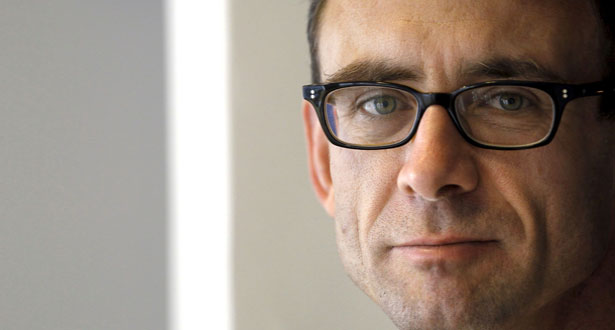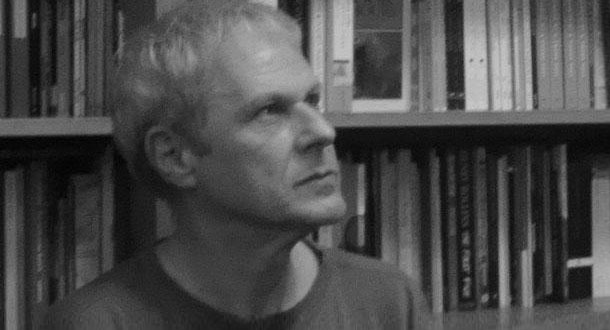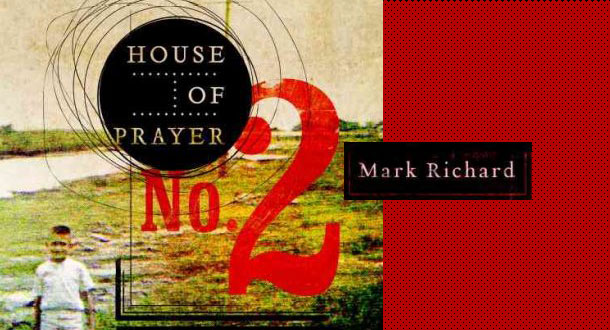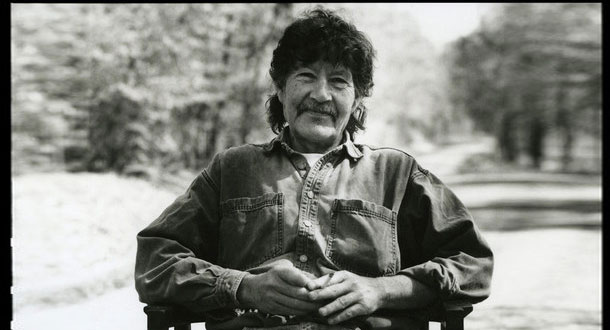If you’re a regular visitor to LitReactor, Richard Thomas needs no introduction, because you’ve either taken one of his classes, or you regularly read his hugely popular Storyville columns.
But for you folks who don’t know that much about Thomas, he’s probably one of the most prolific short story writers currently working, with well over 100 publication credits under his belt in publications such as Cemetery Dance, PANK, Gargoyle, Weird Fiction Review, Midwestern Gothic, Arcadia, Qualia Nous, Chiral Mad 2, and Shivers VI. (He’s also published two collections of his short fiction, Herniated Roots and Staring Into the Abyss.) He’s edited three anthologies including the highly influential The New Black, The Lineup: 25 Provocative Women Writers, and Burnt Tongues with Chuck Palahniuk and Dennis Widmyer. He’s also the Editor-in-Chief at Dark House Press. And on top of that, he’s penned three novels Transubstantiate, the forthcoming The Soul Standard (with Caleb Ross, Axel Taiari, and Nik Korpon), as well as Disintegration (which hits the streets today!) and The Breaker.
And Thomas apparently never, ever, ever, ever, ever, ever sleeps.
On top of all this, Richard’s a tireless supporter of his fellow writers of dark fiction and a good friend, so I hope you enjoy the interview and pick up a copy of Disintegration.
What was the first story you ever wrote, and what happened to it?
Like, ever or as an adult? I remember writing stories and even winning a haiku contest in grade school, and I wrote some stories in high school and college—they were so bad. I remember sitting in my studio apartment on Dearborn at Erie, in downtown Chicago, just a block north of this club, Excalibur, where I used to sit at my typewriter, a Remington QuietWriter, and send out stories to Omni, using whiteout to fix the errors, making copies down the street. Oh, man, I was so delusional. This would have been about 1990. The first story I published, really, was this bizarro story up at Opium Magazine, called “Animal Magnetism.” I think that went dark a few years ago—it was published back in 2007.
When you sold your first piece of writing, how did you celebrate?
My first professional sale was to Cemetery Dance, for inclusion in the anthology, Shivers VI. When I first heard, to be honest, I was disappointed. I wanted to get into the magazine, and hadn’t even heard of the Shivers series. When I looked it up I saw it was a really good anthology series, so of course I said yes, but I felt it might be less prestigious (obviously I knew nothing back then). When they announced the TOC for Shivers VI, guess who was in there? Stephen King and Peter Straub, as well as Brian Keene, Kealan Patrick Burke, Melanie Tem…so many great voices. I think I cried. It just seemed so surreal, being such a huge King fan since high school.
Tell us about your process: Pen, paper, word processor, human blood when the moon is full... how do you write?
Typically I write on my computer—it helps that I type 70 wpm. But I do take notes, I lie awake at night chasing stories and plotlines down rabbit holes, I sometimes keep a folder of images on my desktop (like with Disintegration, and anything I Googled that fit the bill). I don’t typically plot, I’m a “pantser,” so I tend to sit in an emotion, or follow a big idea, but rarely do I know where it’s going. For Transubstantiate, my first book, I wrote it on my lunch hour at AonHewitt—closing the door, wolfing down a sandwich, while I took each day of the week for a separate character: Monday for Jacob, Tuesday for Marcy, etc. I’d only write what I could in one hour, usually 700-1,000 words. It made me wait, I anticipated each POV, and it was so limited, that I couldn’t wait to sit down each day.
For Disintegration, my second book, I wrote the first half during my MFA at Murray State, that first semester. The second 40,000-words I wrote in a great purging a year and a half later, during a hazy five days, as I’d put it aside to study with my literary professor, Dale Ray Phillips, who was nominated for a Pulitzer Prize. That was intense—my fingers bruised, arms sore, and when it was over I broke down and cried (you may sense a theme here, that I’m a big baby) just exhausted from the journey, drained. I thought I might throw up. The Breaker, my third novel, and the second book in the Windy City Dark Mystery Series (at Random House Alibi) I wrote last December on deadline, 65,000-words in about three weeks. It was intense, but it felt great to really surrender to something like that, not having written a novel in several years.
What's the biggest mistake you've made as a writer?
Not starting soon enough. I was too busy chasing girls and getting drunk, trying to act like an artist—Hemingway, Burroughs, etc.—instead of putting in the work. I could have stood up to my parents and studied creative writing at Bradley University, instead of going into advertising, but I just didn’t have the guts, couldn’t see how that was possible. It took many years of unfulfilling work in the world of advertising, getting sober, and taking a class with Craig Clevenger to really find my voice, my inspiration, my desire to write again. I got lucky.
What kind of catharsis did you achieve from your latest work?
I guess that would be The Breaker. It was a touchy subject—the idea of trying to figure out how monsters become monsters, how an innocent boy becomes something broken and angry, trying to break that cycle of abuse. It was dark, but also very sweet at times. I had to make a lot of choices about what to show, what not to do. It’s being edited now, so we’ll see how it turns out. Disintegration, that was also pretty intense—six years of writing, workshopping, MFA, submitting, getting an agent, submitting, and working with Alibi, it’s been a wild ride. I finally learned to surrender to my editor, to trust somebody else, and not hold onto everything so tightly, and in the end, I think it’s a much better book. It’s hard to do that when you’ve been alone for so long.
Which fictional character would you most like to have a drink with, and why?
From my writing or just in general? Can I just say Batman? There is a dominatrix in Disintegration that might be interesting to hang out with—if I was single, I mean.
Where do you buy your books?
All over. Amazon, of course. Mostly print, some eBooks. I buy books at conferences, book fairs, trade shows, my local library, and then local bookstores, both big and small. Directly from publishers sometimes, or from an author at a launch. Really depends.
How do you handle a bad review of your work?
Typically not very well. I try to ignore them, but I also like to see why they didn’t like it, where the disconnect was, and I tend to think about how I could have done better. I know I can’t please everyone. I tend to be too dense, or too “purple” for some people, but it’s just the voice I have. I hate when people go into the book knowing it’s dark and then slam it because it’s dark. Or 1-star reviews when the book isn’t even out yet—what, you hate the cover, or the idea of what I’m doing, or just me? Not sure. I also hate when people say they really love it, and then give it 3 stars. Ha, why not four or five if you loved it? Mostly, I try not to sweat it, and instead enjoy the readers that really love what I’m doing, my “people” who get what I’m trying to do. I love it when a new reader, a total stranger, is blown away by what I’ve done—that’s why I do it, to take them on that rollercoaster ride.
What's the worst advice you hear authors give writers?
To focus on one genre, or to not write short stories. I’ve had so much fun writing across a ton of genres—horror, crime, fantasy, science fiction, Southern gothic, magical realism, transgressive, neo-noir, literary—you name it. I’ve learned so much writing stories, meeting people, getting to know editors, sharing a TOC with authors I love reading, and really respect. You have to put yourself out there, right? And when you can unite either in a magazine, or in an anthology, it’s always exciting to me.
You’ve published a novel with an extremely small press and now Disintegration with an extremely large press. Which experience did you enjoy more? And what were the major differences between the two?
That’s a great question. My first book was with a small press that is now gone. It was exciting, they did a lot of good things for me, but in the end they dropped the ball a lot. Herniated Roots was a bit of a mess, didn’t get paid on time, but it got some good exposure. Staring Into the Abyss was a lot of fun, George Cotronis at Kraken Press did a lot of work on that book—the cover art and design is amazing, and I enjoyed that experience, knowing that it was going to be on a much smaller scale. And of course I’ve worked with a ton of small presses on anthologies and magazines, and most of the editors have been great—Michael Bailey at Written Backwards, for example (Qualia Nous, as well as both Chiral Mad 2 & 3), and everyone at Cemetery Dance, Brian Freeman, Richard Chizmar, and Norman Prentiss, not to mention so many other great presses—Centipede Press, Dzanc Books, Omnium Gatherum, Perpetual Motion Machine Publishing, Crystal Lake Publishing, etc.
Working with everyone at Random House Alibi has been amazing—totally different than the small presses. My main editor, Dana Isaacson has been there for a long time, and has given me great advice, even if I resisted it at first. A team of copy editors has really whipped the book into shape—I’d never gotten style sheets before, or edits on redundancies, dangling modifiers, fact checking, etc. And then a group of great PR/marketing people that helped get my blurbs, set up a blog tour, designed art for social media, etc. And they’re working on foreign rights, which is exciting, as well as my agent talking to several studios right now about film rights. It’s really been a wonderful experience, and I’m excited to see where this series goes. We’re doing something different, with this Windy City Dark Mystery Series, each novel set in Chicago, but with a different protagonist. It’s more like Stephen King building his world in small town Maine settings than a traditional detective or cop solving crime after crime. Keeping my fingers crossed.

About the author
Keith Rawson is a little-known pulp writer whose short fiction, poetry, essays, reviews, and interviews have been widely published both online and in print. He is the author of the short story collection The Chaos We Know (SnubNose Press)and Co-Editor of the anthology Crime Factory: The First Shift. He lives in Southern Arizona with his wife and daughter.

.jpg)




